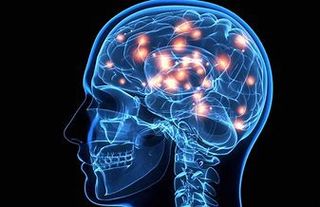More and more people are trying to improve brain health. For some, this is simply an effort to keep our brains healthy and ward of degenerative diseases, like dementia or Alzheimer’s Disease. For others, there is an interest in promoting focus and concentration, so that we are optimizing our performance, and working our best on tasks that involve thinking.

Source: Source:: Shutterstock
While in many ways brain health is somewhat out of our control, due to genetics or age-related changes that we can’t do much about. But there are claims out there that certain dietary supplements can help to improve brain functioning and health, especially as we age. Shopping around for supplements can be fairly simple, especially when it comes to your basic vitamins and minerals, but beyond that, it can get downright confusing. Many supplements that target a particular ailment or condition often contain a variety of herbs that you most likely have never even heard of before. So, what should you be taking to improve your cognitive functioning, and what is the evidence that is actually might work?
B Vitamins
If you’ve researched this topic before, you’re probably familiar with the well-known relationship between B vitamins and cognitive decline. In short, increasing your intake of B vitamins, particularly folate, may reduce your risk of developing dementia later in life. B vitamins are found in most multi-vitamin supplements (like Centrum, for example), but sometimes you might benefit from taking a B-12 or B-6 stand-along supplement. These are water soluble, meaning that what isn’t absorbed will exit in your urine, so there is less concern about the vitamin building up in your system and posing toxicity concerns.
But what about all of the different herbal remedies and tinctures on the market? While there may not be an OTC anti-dementia treatment, there is some promising research for natural remedies that just might help prevent some aspects of cognitive decline with ageing.
Carnitine
Also seen as L-carnitine, acetyl-L carnitine, propionyl-L carnitine, this supplement does not directly affect the brain, but rather carnitine plays an important role in mitochondria, the source of energy production in each cell. Carnitine is important because there is a possible connection between aging and a decline in mitochondrial function (1). Current research suggests that acetyl-L carnitine supplements may improve mental functioning and attenuate cognitive decline in older adults (2).
Bacopa monnieri
Bacopa what? It’s a mouthful, I know. But believe it or not, this Indian herb has been researched a fair amount in humans and studies show that Bacopa monnieri extract may improve cognitive function (3). Bacopa monnieri has antioxidant properties that may function to protect our brains from oxidative damage, thus slowing down the cognitive decline process.
Rhodiola Rosea
Rhodiola extract has a long history as a medical plant typically meant to provide stress relief and combat fatigue and weakness. More and more research is revealing a link between Rhodiola supplementation and its potential use in the prevention of cognitive decline, both age and stress related (4). Although we can’t say yet that Rhodiola will definitely improve your cognitive functioning, it won’t hurt to try it out.
Blends
In addition to those mentioned, there are a ton of other herbs and plant extracts that often appear in supplements aimed towards improving cognitive function, like ashwagandha root, mucuna puriens, alpha lipoic acid, phosphatidylserine, and fistein, just to name a few. Many of the benefits of these herbs can be addictive, meaning that when you combine them their effects can be felt and seen better. For this reason, you might want to opt for a blend over trying individual herbs and supplements for cognition. Pure Essence BrainEssence is an example of a blend that includes the herbs mentioned above, as well as L-leucine, mucuna pruriens, and others. This formulation boosts cognitive functioning while reducing stress and anxiety(both of which been linked to neurodegenerative diseases) (5). Remember that when choosing a supplement it is important to opt for one that has also been third-party tested, so you can be sure your supplement contains the ingredients and the amounts listed.
References
1. Carnitine Fact Sheet, NIH. https://ods.od.nih.gov/factsheets/Carnitine-HealthProfessional/
2. Montgomery et al, 2003. Meta-analysis of double blind randomized controlled clinical trials of acetyl-L carnitine versus placebo in treatment of mild cognitive impairment and mild Alzheimer’s disease https://www.ncbi.nlm.nih.gov/pubmed/12598816
3. Simpson et al, 2015. Bacopa monnieri as an antioxidant therapy to reduce oxidative stress in the aging brain. https://www.ncbi.nlm.nih.gov/pmc/articles/PMC4564646/#B6
4. Dimpfel et al, 2018. Assessing the quality and potential efficacy of commercial extracts of Rhodiola rosea. https://www.ncbi.nlm.nih.gov/pmc/articles/PMC5976749/
5. Justice,
2018. The relationship between stress and Alzheimer’s disease. https://www.sciencedirect.com/science/article/pii/S2352289518300031?via%3Dihu
Don't forget to opt-in to Our Healthy Living Society and get 3 free gifts while receiving the latest information on health, well-being and groundbreaking news about natural nutrition.

No comments:
Post a Comment